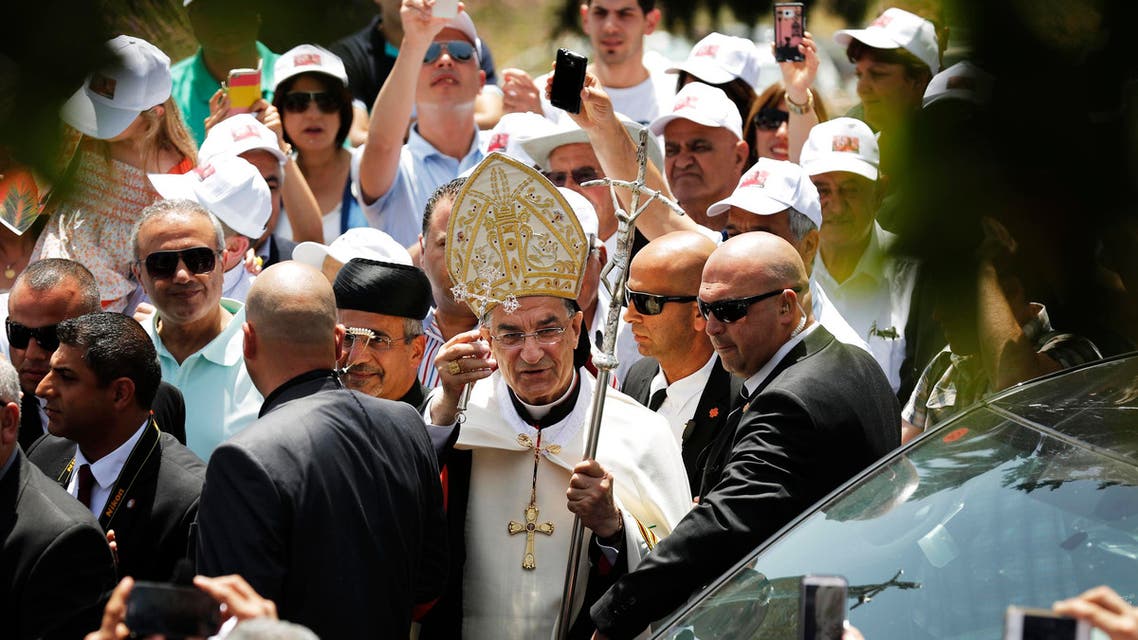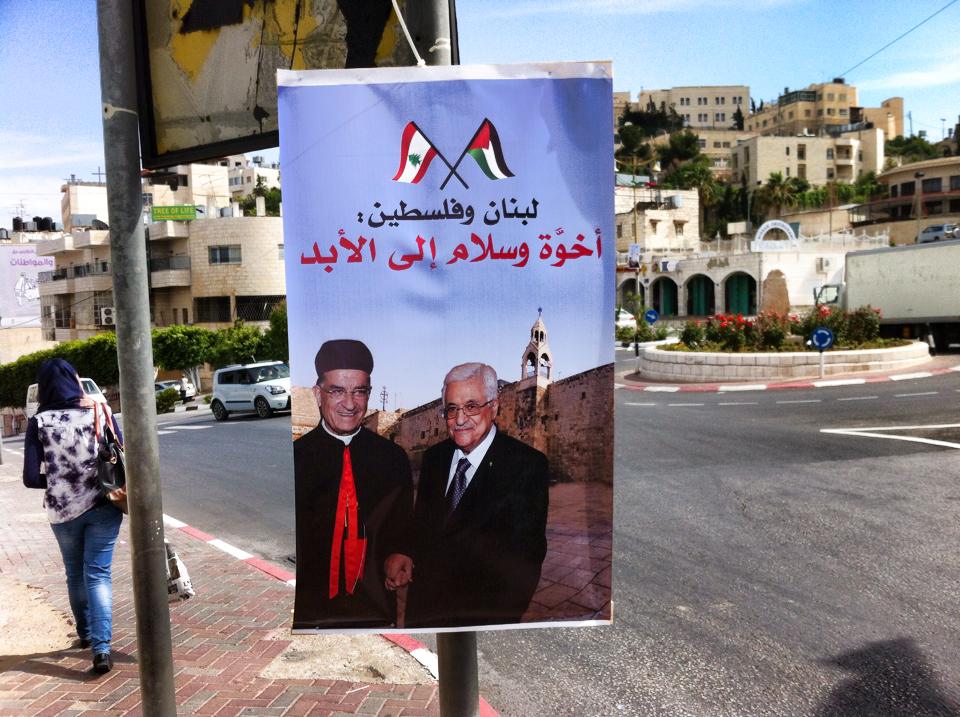Originally published on Ma’an News Agency. on May 10, 2014.
BETHLEHEM (Ma’an) — A prominent Palestinian Christian activist group has urged the Lebanese patriarch to reconsider an upcoming trip to Jerusalem, as controversy mounts over what could potentially be the first visit of a Maronite religious leader to the holy city since Israel’s creation in 1948.
Palestinian group Kairos released a statement on Friday warning Patriarch Beshara al-Rai that his plans to accompany the Pope on a Holy Land visit May 24-26 could be misused by Israeli authorities to “whitewash” the occupation.
“We as Christian Palestinians are eager to see and meet with our religious guides and leaders,” the statement said, but it stressed that the group would prefer to meet with him in “prayer of the spirits, and not in the presence of the Israeli occupation.”
The group also expressed its desire to “prevent the formation of any moral, ethical, or religious cover” for the occupation, highlighting their fears that Israeli authorities would misuse the patriarch’s visit to distract attention from crimes perpetuated against Palestinians.
“This step may delight the occupation state, not because it believes in the right of religions to express themselves and to practice their rituals, but because it serves its policies and whitewashes its face,” the statement continued.
The Kairos statement comes only two days after President Mahmoud Abbas telephoned the patriarch to say that he “appreciated, respected, and welcomed” the news of his visit.
“This visit contributes to preserving the Arab identity and the resistance of Jerusalem and Palestine,” he told the patriarch on Wednesday according a statement.
“Your visit is not a normalization (with Israel) as those with personal agendas are claiming. They seem to be surrendering to reality by rejecting your visit to Palestine and Jerusalem, explaining that these territories are under occupation,” he said at the time.
‘We want to pray with them’
General Coordinator of the Palestinian Kairos group Rifat Kassis told Ma’an that the group was not condemning the patriarch nor telling him not to come, but trying to ensure sure that he understood the ramifications of his visit and the position of Palestinian Christians.
“You are coming to a visit a besieged city where the owners are not allowed in,” he said. Although Palestinian Christians appreciated the visits of religious leaders from abroad, “we want to pray with them,” he added, noting that Israeli restrictions on freedom of movement meant that tens of thousands of West Bank and Gaza Strip Palestinian Christians are restricted from reaching Jerusalem.
“Israel will say: ‘despite the fact that we are in enmity with the Lebanese we allow the patriarch to visit the shrines,’ when the irony is that most Palestinians cannot,” he added.
Kassis also said that Christians will “lose more than they benefit” from the trip, as the patriarch’s position as an Arab Christian leader meant that Israel would use the visit to “market itself as a savior of Christians” even while it occupies their lands and prevents their freedom of worship.
“This is not a church internal affair. It is highly controversial,” he said, stressing that the trip sets a dangerous “precedent.”


‘I’m going to Jerusalem to say this is our city’
Beshara al-Rai is the patriarch of the 3.5 million strong Maronite church, which is based in Lebanon and has long maintained a stance of anti-normalization with Israel, similar to other major Arab Christian denominations.
The Egyptian Coptic popes, for example, have for decades forbade church members from going on pilgrimage to Jerusalem while it remains under Israeli occupation, even after the 1979 Egypt-Israel peace accord.
Al-Rai has stressed that he will not meet with any Israeli officials and that the trip is purely religious, adding in comments to Reuters earlier this week: “I’m going to Jerusalem to say this is our city, and Jerusalem is Arab.”
The patriarch, however, has been blasted by the media in Lebanon, which is still technically at war with Israel and suffered extensive damage during a month-long 2006 Israeli assault. Many in Lebanon consider any visit to lands occupied by Israel a form of “normalization,” or acceptance of Israeli control over Palestinian lands.
The Campaign to Boycott Supporters of Israel in Lebanon, an activist group linked to the global Boycott, Divestment, and Sanctions of Israel movement, also called on the Patriarch not to visit, stressing in a statement that it would constitute an “implicit recognition of the authority of the criminal entity over the Holy Land.”
“Be loyal to the struggle of the Palestinian people who are crucified, like Christ, every day but who rise again every day and resist their enemy and boycott it,” the statement continued.
The controversy comes amid a wave of hate crimes against Christian churches and property in Israel in advance of the Pope’s visit, as suspected Jewish extremists have targeted Christian religious sites and property across Jerusalem including an attack on the Roman Catholic Notre Dame complex that involved graffiti reading “Death to Arabs and Christians and to everyone who hates Israel.”
After the attack, the Latin Patriarchate of Jerusalem expressed its concerns “about the lack of security and lack of responsiveness from the political sector,” as well as their fears of “an escalation of violence” in anticipation of the Pope’s visit later in the month.
About 200,000 Palestinian Christians live in the Holy Land, split between the West Bank, the Gaza Strip, and inside Israel proper.
